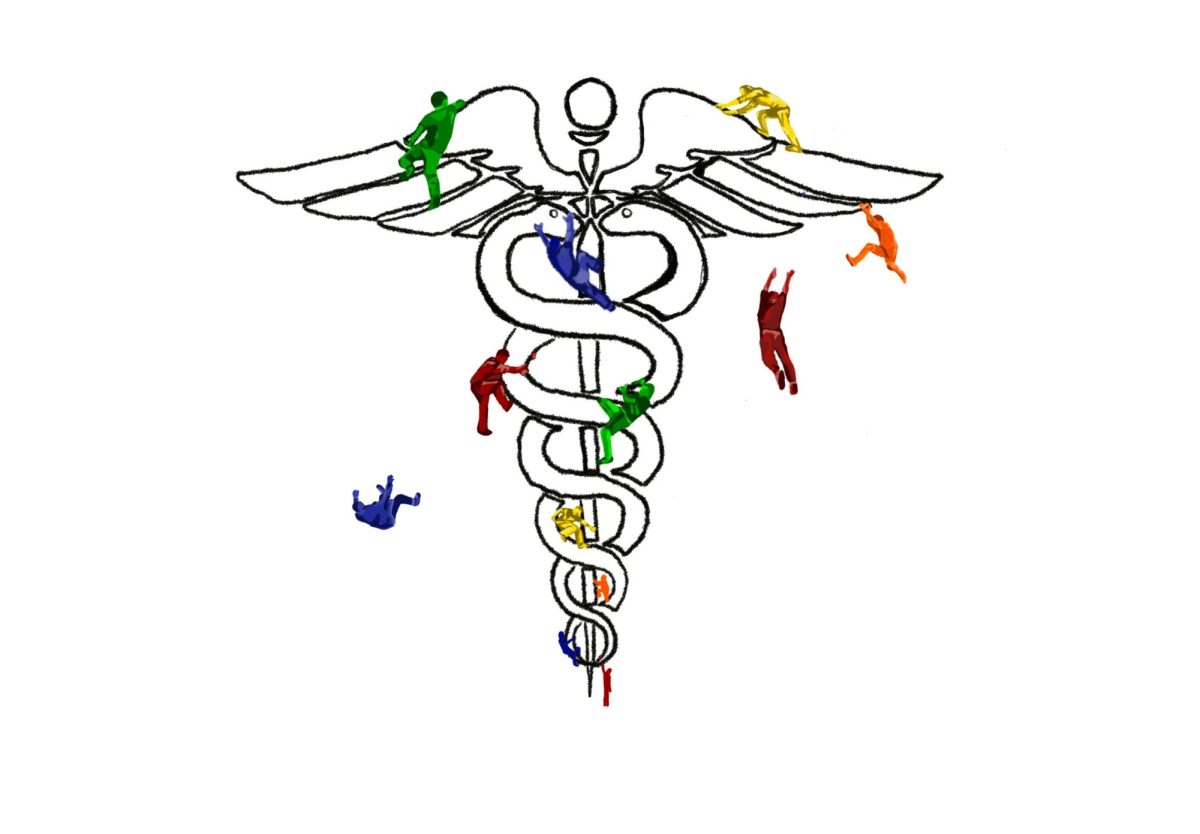It is impossible to describe the loss parents experience with the death of their child. As physicians at a large children’s hospital in Chicago, my colleagues and I work tirelessly to spare parents such heartache. We see some of the most complex pediatric cases in the state and help patients with progressive diseases pass on comfortably. However, there is nothing more devastating to a pediatrician than the preventable death of an otherwise healthy child.
On December 17th, 2023, 5-year-old Jean Carlos Martinez Rivero, a migrant who had arrived in Chicago only days earlier, passed away at Comer Children’s Hospital. At the time of his death, he was residing at a retrofitted warehouse for migrant families in Pilsen housing 2,300 individuals. Initial reports stated that Jean Carlos had prolonged diarrhea, bleeding, and fevers. Per a press release from the mayor’s office on February 17th, 2024 it was confirmed that Jean Carlos’ cause of death was sepsis secondary to invasive Streptococcus pyogenes. From my perspective as a pediatrician, this boy’s death was not an accident but rather was secondary to the numerous inequalities he suffered as a recent immigrant.
In medicine, we seek not only to manage symptoms but to ascertain the underlying cause of illnesses to treat them effectively. When we see a patient, we consider their background and circumstances, identifying socioeconomic barriers to care: the factors outside of an illness that prevent the patient from obtaining necessary care. Barriers could be monetary (inability to pay for services), geographic (lack of transportation to care facilities), or even cultural (medical mistrust and language barriers). All three likely contributed to the death of Jean Carlos.
Children in low-income families, regardless of immigration status, can receive Medicaid benefits in Illinois under the All Kids program. Depending on their household income, there is a chance that families may still need to pay insurance premiums and copays for medical visits. While I am unsure of Jean Carlos’ insurance status, there is a substantial chance he could not obtain medical insurance during his short time in Chicago. A 2015 study of Iraqi refugees in Texas noted that the language barrier and complexity of Medicaid renewal were one of their most cited obstacles to them obtaining medical care.
Initial reports noted that Jean Carlos’ family asked shelter staff to leave them alone when they inquired about his health. It is possible the family was worried about the monetary cost of taking him to the hospital or was distrustful of the medical staff’s ability to care for him. A 2023 study found that immigrant children are between 4-16 percent less likely to visit a physician than their non-immigrant counterparts. Volunteer teams such as the Mobile Migrant Health Team regularly visit shelters to administer care and offer vaccinations, but their resources are stretched thin.
Crowded and unsanitary conditions at the Pilsen shelter further worsened Jean Carlos’ situation. There are numerous reports of rampant viral infections, dirty bathrooms, and spoiled food at the shelters. These conditions and low vaccination rates contributed to the highest spike in chickenpox cases Chicago has seen since 2005; the Chicago Department of Public Health identified 400 cases of chickenpox in the city since January of 2023. Anecdotally, we often see children who are experiencing homelessness visiting the emergency department with viral gastroenteritis. These stomach bugs can cause profuse diarrhea and vomiting, which can lead to dangerous dehydration that may be life-threatening if not appropriately treated. Since August of 2022, Chicago has received over 26,000 migrants, complicating an already dire housing crisis. Today, 68,000 Chicagoans are currently experiencing homelessness, many of whom are migrants. However, the city of Chicago only allocates $77 million to homelessness as of FY 2024, order(s) of magnitude less than fellow big cities like Los Angeles and New York.
While these factors all shaped the end of Jean Carlos’ life, my colleagues and I believe that negative sentiment towards refugees created these crises in the first place. Public services are strained beyond their breaking points in sanctuary cities such as Chicago, as Governor Greg Abbott (R-Texas) transports migrants in the thousands. These children are viewed as political statements rather than innocent human beings fleeing conflict-ridden countries. Jean Carlos’ death is not an isolated incident—another tragic example is the death of 3-year-old Colombian refugee Jismary Alejandra Barboza González, who died of bacterial pneumonia while riding a bus from Texas to Chicago. She was ill when boarding the bus, but never received medical attention in Texas.
I propose the immediate mobilization of increased funds to address the homelessness crisis in Chicago. One proposed solution is the “Bring Chicago Home” movement which seeks to restructure the Real Estate Transfer Tax for homes sold for more than $1 million, creating at least $100 million of additional revenue annually. Unfortunately, Bring Chicago Home’s proposal did not pass this year, but I urge Chicagoans to stay vigilant for similar policies in the future. Furthermore, a state-funded unit of health care professionals dedicated to primary care screening, vaccination, and shelter hygiene should be formed in conjunction with the numerous hospital systems in the city.
Until more systemic changes can be implemented, I urge students, such as those at the University of Chicago, to volunteer at migrant vaccination clinics. These initiatives are even more integral to migrant health as measles cases have skyrocketed in shelters. Both health professionals and individuals without healthcare expertise can volunteer through the Chicago Medical Reserve Corps, the Mobile Migrant Health Team, and the Chicago Refugee Coalition. Finally, educating peers, professors, and administrators alike regarding the plight of migrant children is equally as imperative. Only through vocal and public advocacy will organizations, such as the University of Chicago, feel motivated to mobilize the appropriate teams and resources to make an appreciable impact on this public health emergency.
Unfortunately, the truth is that these tragedies will only end when politicians stop viewing migrants as pawns and start treating them as people deserving of compassion and care.
Pranshu Bhardwaj, MD is a Resident Physician (Pediatrics) in Chicago, IL
















RD / Apr 30, 2024 at 9:57 am
Thank you for sharing this, and for your work at Comer. Please keep sharing these stories.